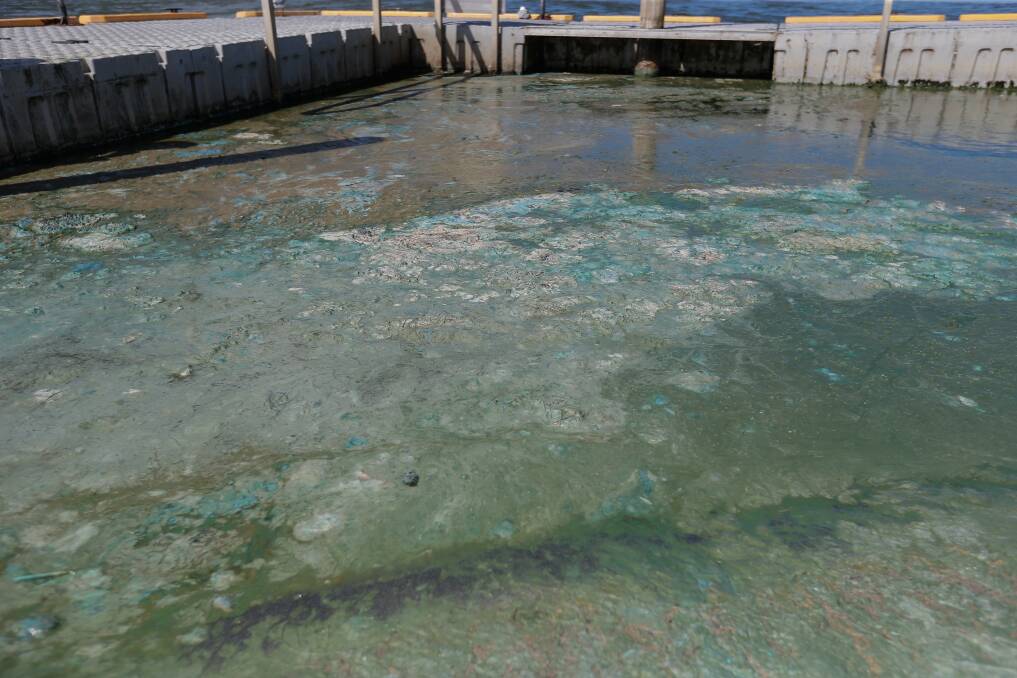
The peak body representing Victoria's recreational fishers has lambasted the inaction of authorities responding to the catastrophic and ongoing fish kill in the Curdies River.
Subscribe now for unlimited access.
or signup to continue reading
VRFish "condemned the lack of a detailed response" from the Victorian government to what it called a "disaster" unfolding in the river.
When conditions turned toxic in the Curdies in early April, killing several thousand native fish, the three authorities with jurisdiction over the river all suggested it was not their issue to clean up.
The Corangamite Catchment Management Authority said the issue was a matter for the Environment Protection Authority Victoria, but the EPA said it considered the kill a natural occurrence and wouldn't be investigating.
The Department of Environment, Land, Water and Planning described the tonnes of dead fish as a "small kill" and said nature would have to run its course.
But several weeks later the fetid conditions haven't improved, with a secondary kill leading to thousands more dead fish, some of which are believed to be at least 30 years old.
VRFish chair decried the passive approach of the authorities.
"The current handpassing of blame between State government agencies, including the EPA, will not fix this issue. Nor will putting heads in the sand. This type of response is utterly unacceptable to Victoria's recreational fishing community," he said.
"VRFish, as the recognised Recreational Fishing Peak Body expects to receive a full and comprehensive report detailing the cause of this catastrophe and what remedial action is being taken."
IN OTHER NEWS
He said the lack of action wasn't confined to the current event, and that the various authorities had allowed unacceptable conditions to persist for far too long.
"We're watching thousands of native fish go belly up and now dead cattle floating down the river. This is not a small, limited fish kill as stated by DELWP or a natural event as stated by the Corangamite CMA. This is an unmitigated disaster, that was foreseen decades ago in risk assessments and catchment strategies ever since," he said
"If taxpayer funded agencies cannot respond in an appropriate manner, then it's time for the current Government to direct funding to agencies that can. The Victorian community deserves better than a premier fishing destination being turned into a drain with shrugged shoulders as the response."
Meanwhile, Wannon Water have strongly denied any connection between the river conditions and the nearby Peterborough Sewage Farm, which a number of locals suspected was causing the smell of excrement emanating from the affected section of the river.
"The current blue green algae bloom reported in the Curdies River is not connected to the Peterborough Sewage Treatment Plant," general manager of assets and service delivery Simon Hermans said.
"As a requirement, we routinely sample all recycled water at our sewage treatment plants, including prior to irrigation, and conduct regular site visits and inspections of our facilities to ensure structural integrity," he said.
Mr Hermans also emphasised Wannon Water did not source water from the Curdies as part of its drinking water resources.
Wannon Water said the sewage farm was built in 2006 in order to address periodic leakage from private septic systems in Peterborough into the Curdies River.
Our journalists work hard to provide local, up-to-date news to the community. This is how you can access our trusted content:
- Bookmark https://www.standard.net.au/
- Make sure you are signed up for our breaking and regular headlines and newsletters
- Follow us on Facebook, Twitter, Instagram and LinkedIn
- Tap here to open our Google News page.
- Join our Courts and Crime Facebook group and our dedicated Sport Facebook group
- Subscribe
Now just one tap with our new app: Digital subscribers now have the convenience of faster news, right at your fingertips with The Standard:
Have you signed up to The Standard's daily newsletter and breaking news emails? You can register below and make sure you are up to date with everything that's happening in the south-west.















